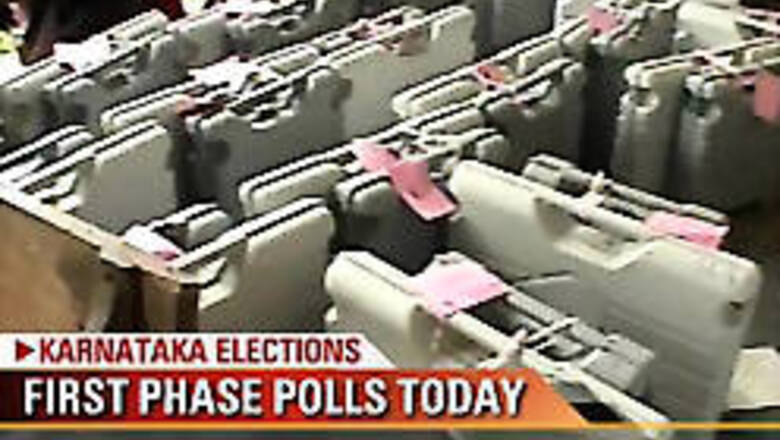
views
Bangalore: The last assembly election in Karnataka, held in April-May 2004 along with Lok Sabha poll, resulted in a fractured verdict for the first time in the history of the state legislature.
The Bharatiya Janata Party (BJP) emerged as the single largest party winning 79 of the 224 seats while the Congress secured 65 and Janata Dal-Secular (JD-S) 58 seats.
Of the remaining 22 seats, independents won 13. Five seats went to the Janata Dal-United while the Communist Party of India-Marxist and the Republican Party of India got one each.
Regional parties like Karnataka Chaluvali Vatal Paksha (KCVP) and Kannada Nadu Party (KNP) also won one seat each.
Although the Congress secured 35.28 per cent of votes, its strength in the lower house declined to 65 seats from 135 in September-October 1999.
The BJP polled 28.49 per cent of votes but won 79 seats whereas the JD-S mustered 20.59 percent for 58 seats.
Interestingly, the Bahujan Samaj Party (BJP), which made a debut, was the only party to have drawn blank though it secured 1.75 per cent of votes. In the process, it damaged the prospects of the Congress in as many as 42 constituencies.
As the first state in the country to undertake the delimitation exercise, Karnataka will witness a three-phase poll from Saturday in the old Mysore region consisting of 89 constituencies in 11 southern districts including Bangalore, where the number of seats has shot up to 28 from 16.
Post-delimitation, the number of assembly segments in the state remains the same (224) despite change in the character and composition of almost each constituency.
Of the total seats, 36 are reserved for Scheduled Castes and 15 for Scheduled Tribes.




















Comments
0 comment